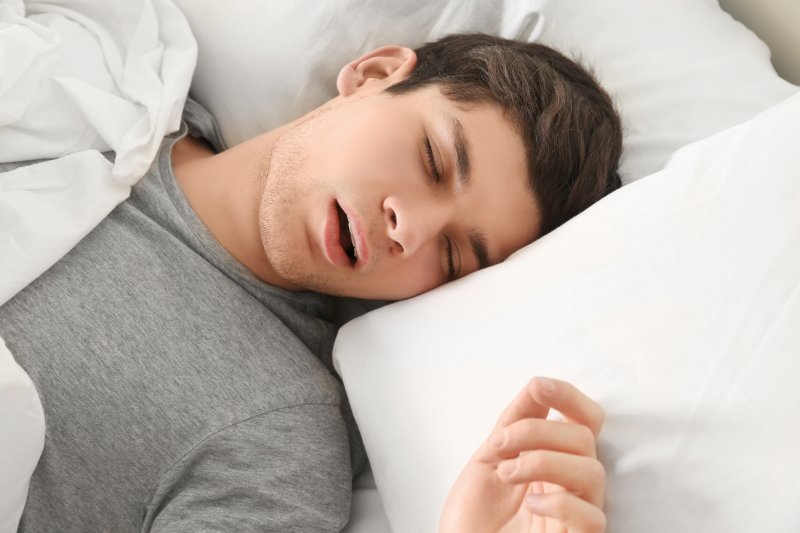
There are many reasons why the jaw joint – also known as the temporomandibular joint, or TMJ – might become strained or injured, which can cause serious jaw and facial pain. Sometimes it’s the result of an injury, while in other cases, it’s a long-term consequence of bad habits like resting your chin on your fist. And sometimes, it’s linked to a serious, potentially life-threatening disorder: sleep apnea. Below, you can find out more about the relationship between the TMJ and sleep in Topeka.
What Does Sleep Apnea Have to Do with TMJ Disorders?
As many as 43 percent of TMJ patients also have problems sleeping in one way or another, with sleep apnea being a particularly common example. As you may already know, sleep apnea occurs when the airway collapses or is blocked in some way. When that happens, the body automatically moves the lower jaw forward in an effort to open the airway back up. However, since sleep apnea episodes can happen several times during the night, the TMJ is constantly moving instead of resting, and it suffers from a lot of stress and tension. As a result, not only will you wake up feeling exhausted in the morning, but your jaw will constantly be in pain.
It should be noted that a TMJ disorder can be a side effect of a contributing factor for sleep apnea. For example, it might be linked to the chronic fatigue syndrome that makes sleep apnea worse, or it could be caused by misalignment of the jaw that also blocks the airway while you sleep. Whatever the case, it’s important to narrow down the root cause of both disorders so that they can be treated effectively.
How Can You Improve Your TMJ Disorder and Your Sleep?
TMJ disorders sometimes go away on their own, but sleep apnea never does. You’ll definitely need to visit a sleep dentist in Topeka to find relief from your sleep disorder; in many cases, they’ll also be able to address your jaw pain at the same time.
For example, TMJ disorders and sleep apnea can both potentially be treated with specially made oral appliances. Each appliance is customized for each patient depending on their needs. You can get a device that adjusts the jaw and prevents the soft tissues in your mouth from blocking the airway while also helping the jaw joint find a more comfortable resting position.
Living with chronic jaw pain is challenging enough, but it can be especially difficult when you’re frequently exhausted. Get in touch with your sleep dentist today to ask about the first steps you need to take to overcome sleep apnea and TMJ disorder.
About the Author
Dr. Michael E. Michel has decades of experience treating sleep apnea without the use of CPAP machines, and he constantly hones his skills in dental sleep medicine so that he can help Topeka families rest easier. He has also extensively studied non-surgical solutions for TMJ disorders that can be utilized alongside sleep apnea treatment. If you think you might have sleep apnea or a TMJ disorder, schedule a consultation at Sleep Solutions by Michel Dental by visiting his website or calling (785) 273-0802.
